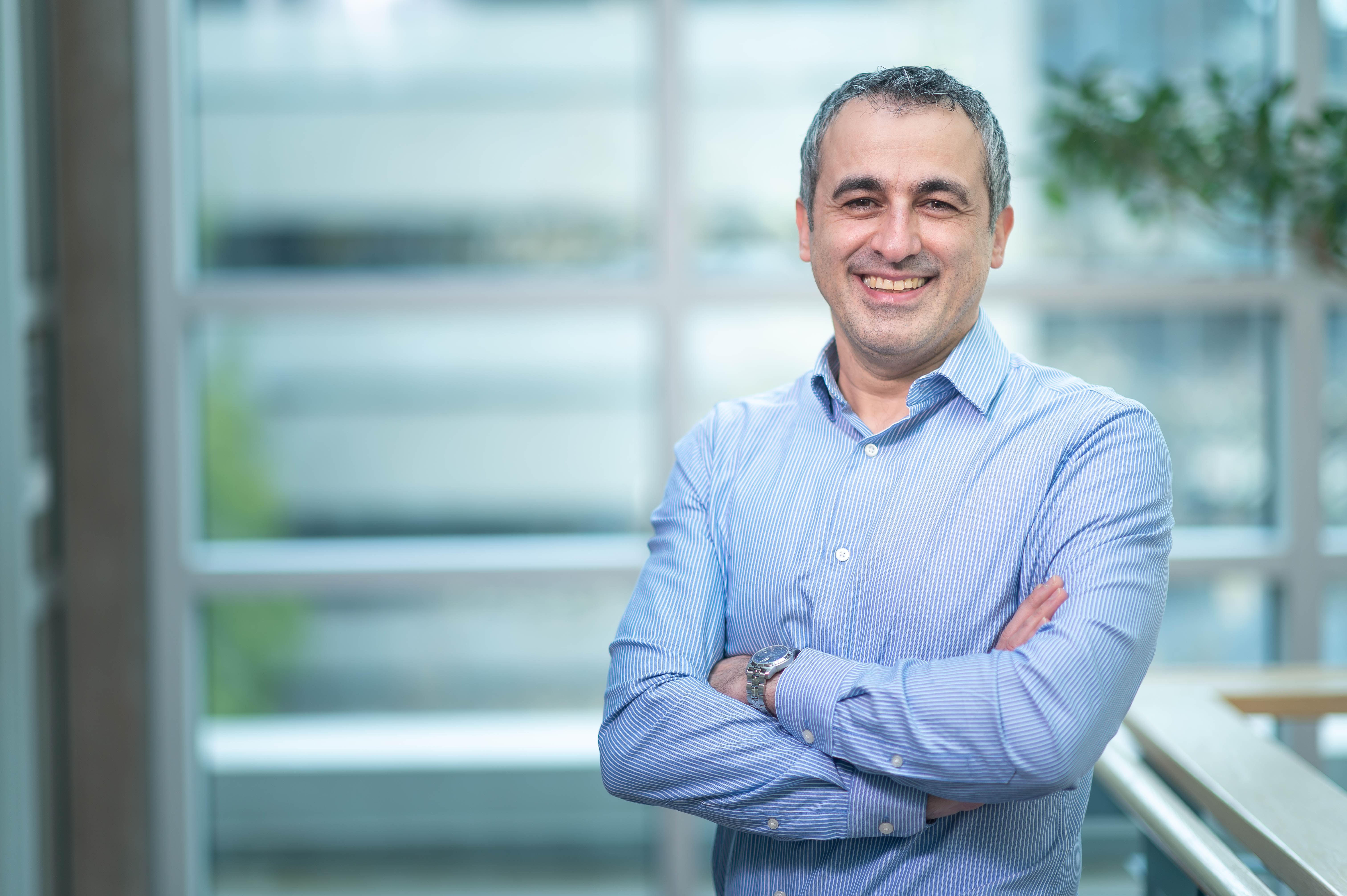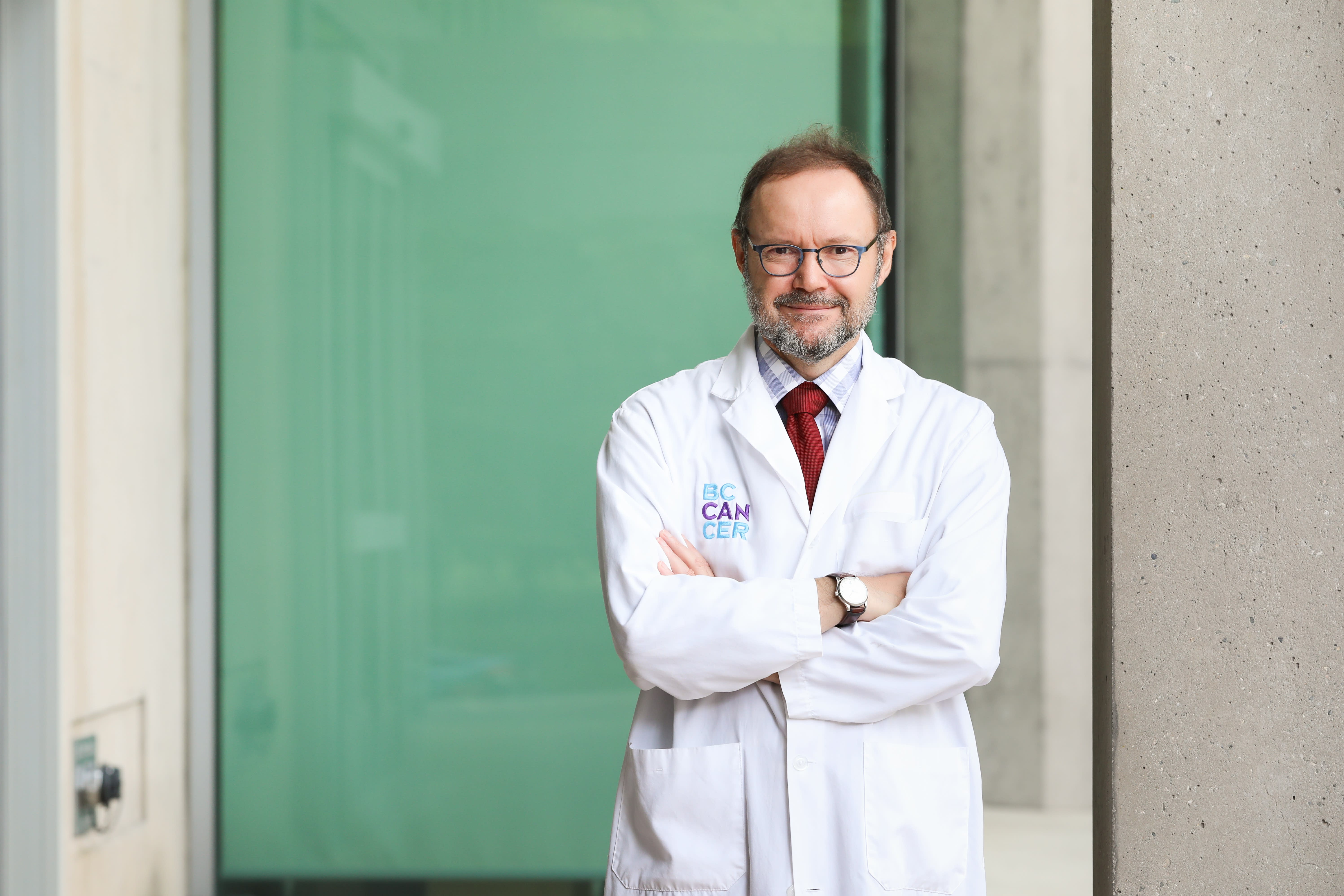BC Cancer Agency researcher—inspired by her own family cancer experience—leads study to help those at risk of deadly hereditary stomach cancer
February 12, 2015
Found in News
VANCOUVER, B.C. BC Cancer Agency researchers publish important, life-saving findings in the inaugural JAMA Oncology that will immediately impact the care for families around the world at risk of developing a deadly hereditary gastric cancer.
The study, supported by the BC Cancer Foundation and led by co-authors Samantha Hansford and Pardeep Kaurah of the BC Cancer Agency and University of British Columbia, provides the first accurate risk estimates for individuals who carry CDH1 mutations through detailed analysis of 75 families with a strong family history of gastric cancer.
The data will be used by genetic counselors to help families around the world determine which cancer risk reducing options are right for them. The study reports the following cancer risk estimates for individuals with a CDH1 genetic mutation:
- 70% risk for men (stomach cancer)
- 56% risk for women (stomach cancer)
- 42% risk of lobular breast cancer for women
Hansford, study co-author joined the BC Cancer Agency after being inspired by the life-saving impact the genetics research team had on her family. Hereditary diffuse gastric cancer is a rare condition that can result in aggressive, early-onset cancers of the stomach and breast across several generations of a family.
Dr. David Huntsman, BC Cancer Agency and UBC Professor of Pathology and Laboratory Medicine and Obstetrics and Gynecology, and his team discovered the cause of the gastric cancers that had claimed the lives of many in Hansford’s family and developed a genetic test to determine who was at risk of developing this disease. This test enabled family members who carry a CDH1 mutation to undergo a surgical prevention strategy, which saved the lives of Hansford’s mother, grandmother and uncle.
The risk-analysis study will help to inform whether or not preventative surgery is a life-saving option for those carrying mutations within the CDH1 gene.
“We hope that this research will provide a greater number of families impacted by hereditary diffuse stomach cancer with the opportunity to pinpoint the genetic basis of their disease and, in turn, relieve unaffected individuals from their burden of uncertainty as to whether they are at an increased risk for cancer,” says Hansford, a BC Cancer Agency research assistant and University of British Columbia graduate student.
Hansford’s mother, Geralyn, underwent a preventative prophylactic gastrectomy— the only reliable form of preventing this deadly cancer amongst CDH1-mutation carriers.
“I’m so grateful for the work being done around the world and at the BC Cancer Agency. I thank them for my life because I’m not scared [of cancer] anymore. I thank people like my daughter and Dr. Huntsman, who are interested in knowing as much as they can about this horrible, killer disease,” says Geralyn Hansford, who lost her sister Arleen to stomach cancer prior to learning about the hereditary genetic mutation.
The study also shed light on what is causing gastric cancers in 60 per cent of families with multiple gastric cancers but no CDH1 mutations by identifying other genes that may predispose individuals to this deadly disease. This work has led to a global collaborative effort to look at these genes in conjunction with CDH1 to uncover the disease-causing mutations in a broader number of families.
This research was made possible by the BC Cancer Foundation and research grants from the Canadian Cancer Society and the Canadian Institute for Health Research.
“BC Cancer Foundation funding was critical in enabling our research to continue on a path that will have life-saving impacts for families around the world who are affected by this cancer susceptibility gene,” says Dr. Huntsman.
-30-
The BC Cancer Agency, an agency of the Provincial Health Services Authority, is committed to reducing the incidence of cancer, reducing the mortality from cancer, and improving the quality of life of those living with cancer. It provides a comprehensive cancer control program for the people of British Columbia by working with community partners to deliver a range of oncology services, including prevention, early detection, diagnosis and treatment, research, education, supportive care, rehabilitation and palliative care. Visit www.bccancer.bc.ca.
The BC Cancer Foundation is the bridge that connects philanthropic support and research breakthroughs in cancer knowledge. As the fundraising partner of the BC Cancer Agency and the largest funder of cancer research in this province, we enable donors to make contributions to leading-edge research that has a direct impact on improvements to cancer care for patients in British Columbia. We fund with the goal of finding solutions. Visit www.bccancerfoundation.com to make a donation or to learn how you can make a difference in the lives of those affected by cancer.
To arrange an interview:
Allison Colina
BC Cancer Foundation
t.604-707-5934
e. allison.Colina@bccancer.bc.ca


